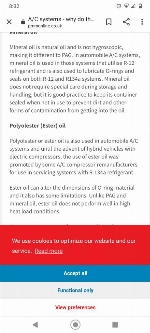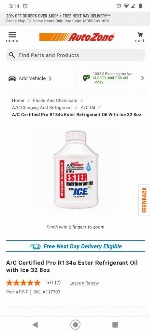For the 7th year in a row, the air conditioning system in my truck has decided to piss out all it's refrigerant. 
Every year I find and fix a new leak (I've replaced literally every component in the whole system now with the exception of the condenser and the lines coming off the compressor), fix the leak, run a vacuum on the system, it holds a vacuum (all leaks fixed), and recharge it...and then next year it leaks again. What gives? Is there something inherent to the designs of these systems of of the refrigerant itself that makes it leak so badly? I've had similar issues with nearly every car I've owned. It seems like keeping refrigerant in an aging car is just **** near impossible.
Every year I find and fix a new leak (I've replaced literally every component in the whole system now with the exception of the condenser and the lines coming off the compressor), fix the leak, run a vacuum on the system, it holds a vacuum (all leaks fixed), and recharge it...and then next year it leaks again. What gives? Is there something inherent to the designs of these systems of of the refrigerant itself that makes it leak so badly? I've had similar issues with nearly every car I've owned. It seems like keeping refrigerant in an aging car is just **** near impossible.


